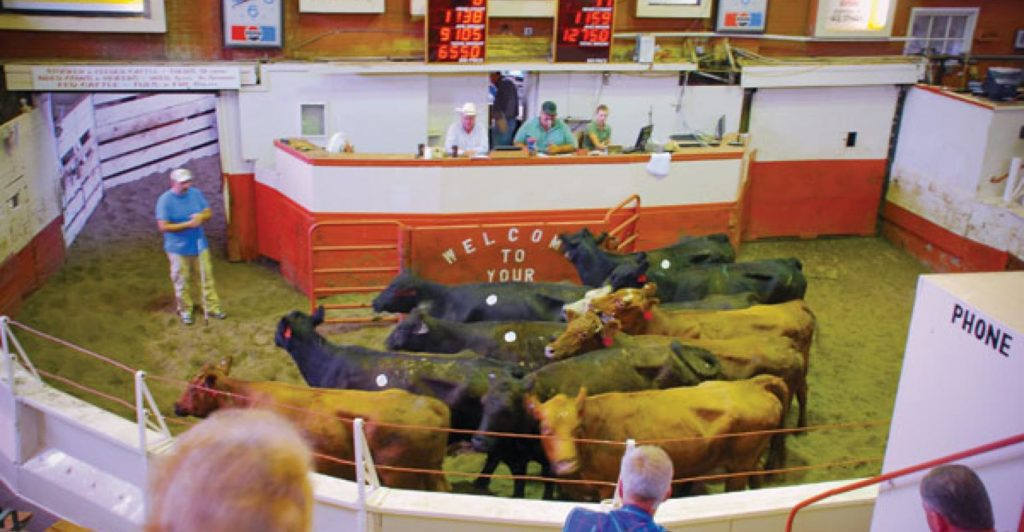Their economy, their restaurant activity and tourist activity are important to our exports. Their success is also important to the U.S. agricultural economy as a whole, with some diversified farms selling pork and poultry and packers selling all types of meat.
It is also hard to know if Japan and South Korea will keep up their pace of U.S. imports of beef under these circumstances. The USMEF has been working hard to develop other markets in Central America, South America and even Africa. How much could developments in those markets offset small dips in Japan and South Korea?
How much of China’s pork and poultry appetite, given the African swine fever problem, can be shifted to U.S. beef?
China is more important as a destination for our competitive meats—pork and, to some extent, poultry. That makes China important, if for no other reason than we do not want to see substantial supplies of pork and poultry pressuring prices and luring U.S. consumers away from beef. Beef sales to China will likely take some time to develop.
Returning to normal?
U.S. West Coast cold storage warehouses are running out of room because the ports in China are overflowing with all sorts of products and cold storage space at a premium for imported meat. But the USMEF said that the situation is gradually improving.
With China’s transportation sector getting back in gear, the backlog of pork and poultry at the ports should begin easing. USMEF’s Joe Schuele said November and December American pork shipments were considered “astonishing,” yet recent weeks have been running 20% ahead of that pace. The demand is there. Logistics are the problem.
In South Korea, coronavirus cases have topped 4,000, with 26 deaths. They have been testing aggressively, testing tens of thousands and building a new testing facility in a matter of days.
Japan’s approach has been different. They are approaching 300 cases in their country, not including over 700 on the Diamond Princess cruise ship. Deaths have been limited to around a half-dozen. Schools are closed for the month. Japan has been criticized for not testing enough, so their numbers could be low. With all the trouble, however, February’s auto sales were down only 10.3%.
China’s government-reported Covid-19 numbers are slowing significantly, with most new cases still occurring in the Hubei Province where the virus started. Chinese deaths have topped 2,900 as of March 2, from nearly 80,000 cases and a reported over 44,000 recovered patients.
In China, there are, according to one report, 96 state-owned companies with 48,000 subsidiaries reporting an almost 92% resumption rate. The state-owned “Assets Supervision and Administration Commission” reported that oil and gas, electricity generation, communications and transportation industries are operating at 95%.
Small- and medium-sized businesses were not doing so well, with only 30% having resumed work. However, the Purchasing Managers Index was claiming 80% of medium and large businesses have re-opened.
The government said it was taking steps to lower interest rates, deferring social insurance fees and cutting energy costs for those smaller businesses. The state-owned firms are estimated to contribute one-fourth or more to the overall GDP and 5-16% of employment, according to the World Bank, (“China Says Over 90 Percent of State Firms Back in Business Amid Corona Virus,” South China Morning Post, 03/02/20).
The so-called migrant workers—workers from the countryside who work in bigger cities or in industrial centers—have not returned to work as fast as resident workers already in the cities and emerging from quarantine. Less than 60% of the migrant workers have returned to work, having had to go through a quarantine when they got back to their company’s city.
There are questions about the ability of China’s banking system to handle GDP growth under 5.5%. The government may have to lower capital requirements again to keep many banks solvent. It’s a tough guess as to whether growth will average that high in 2020.
Prognosticators will prognosticate. That’s what they do. But they are really working in the unknown with this one. Be thankful we are here in the U.S. of A., where our chances of avoiding a major disruption from the coronavirus are much better.
Steve Dittmer is a longtime beef industry commentator and executive vice president of the Agribusiness Freedom Foundation. The opinions of the author are not necessarily those of beefmagazine.com or Farm Progress.








